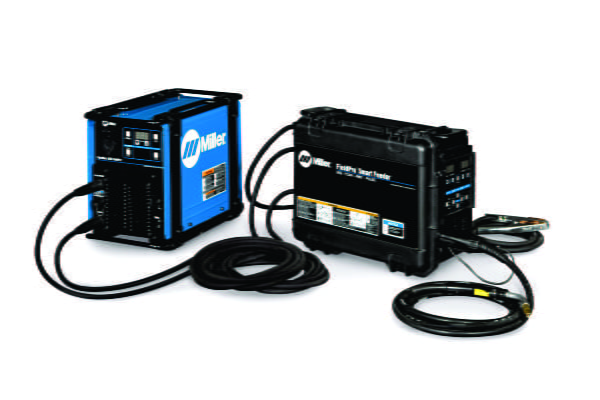ON the back of recent successful welding trials at a major power station, Babcock’s engineering business is ready to roll out a semi-automated welding solution for high pressure pipe welding that doubles process efficiency by drastically reducing welding time, and process-related wastage.
The culmination of three years of developmental trials sees the introduction of this semi-automated welding process set to massively improve the efficiency of traditional high integrity pipe welding while maintaining a quality weld. It offers a radical, innovative solution to large bore welding in the power generation, oil and gas, as well as industrial sectors, utilising the Miller PipeWorx’s Regulated Metal Deposition (RMD™) MIG welding process.
Babcock welding technologist Conn Roux says that Babcock is the first company in South Africa to apply this repeatable welding solution, developed in collaboration with Afrox, the exclusive supplier of Miller welding machines in the country. “The new process is a breakthrough for the South African welding industry and offers a better solution in terms of cost, efficiency, productivity and quality without any of the drawbacks associated with conventional GMAW welding,” says Roux.
“Traditional methods of pipe welding rely on the use of gas tungsten arc welding (GTAW/TIG) for the root pass, followed by shielded metal arc welding (SMAW/stick) for the fill and capping runs. These processes are time-consuming and require specialised welding skills which are in short supply in South Africa and often have to be sourced from other countries,” continues Roux.
Babcock’s innovative approach therefore offers an excellent solution for localisation of labour. Tendani Manenzhe, welding manager at Babcock, says that the company will initially concentrate on improving in-house skills, and later train external welder resources. “By implementing this process, Babcock not only can offer our customers improved efficiencies, but can also contribute to skills development and employment creation in South Africa,” she says.
After many trials to perfect the process, Babcock was able to produce qualified and repeatable procedures that significantly increased the welding deposition rate and reduced welding time by 50%. Improved travel speeds and deposition rates resulted in faster weld completion times, thereby lowering the cost per weld.
Miller’s Regulated Metal Deposition (RMD™) & ProPulse MIG welding process makes it much easier to improve the root and subsequent weld run quality and productivity of pipe welding with a precisely controlled metal transfer that makes it easier for the welder to control the puddle which minimises heat input.
Babcock training manager and expert welder, Houston Isaacs, took part in the trials and says that the improvement of heat input allows for continuous welding, reducing the frequency of stoppages due to interpass temperature being reached. “As opposed to conventional GTAW and SMAW welding, there is no need to pause during the welding process, allowing the welder to complete the weld faster and reducing welder fatigue,” says Isaacs.
With more than 125 years’ experience, Babcock is one of the most established and experienced steam generator and industrial plant suppliers in Africa. Babcock’s specialised engineering business provides safe, effective solutions for the entire lifecycle of industrial plant, from design and build, through operation and maintenance, to decommissioning.
